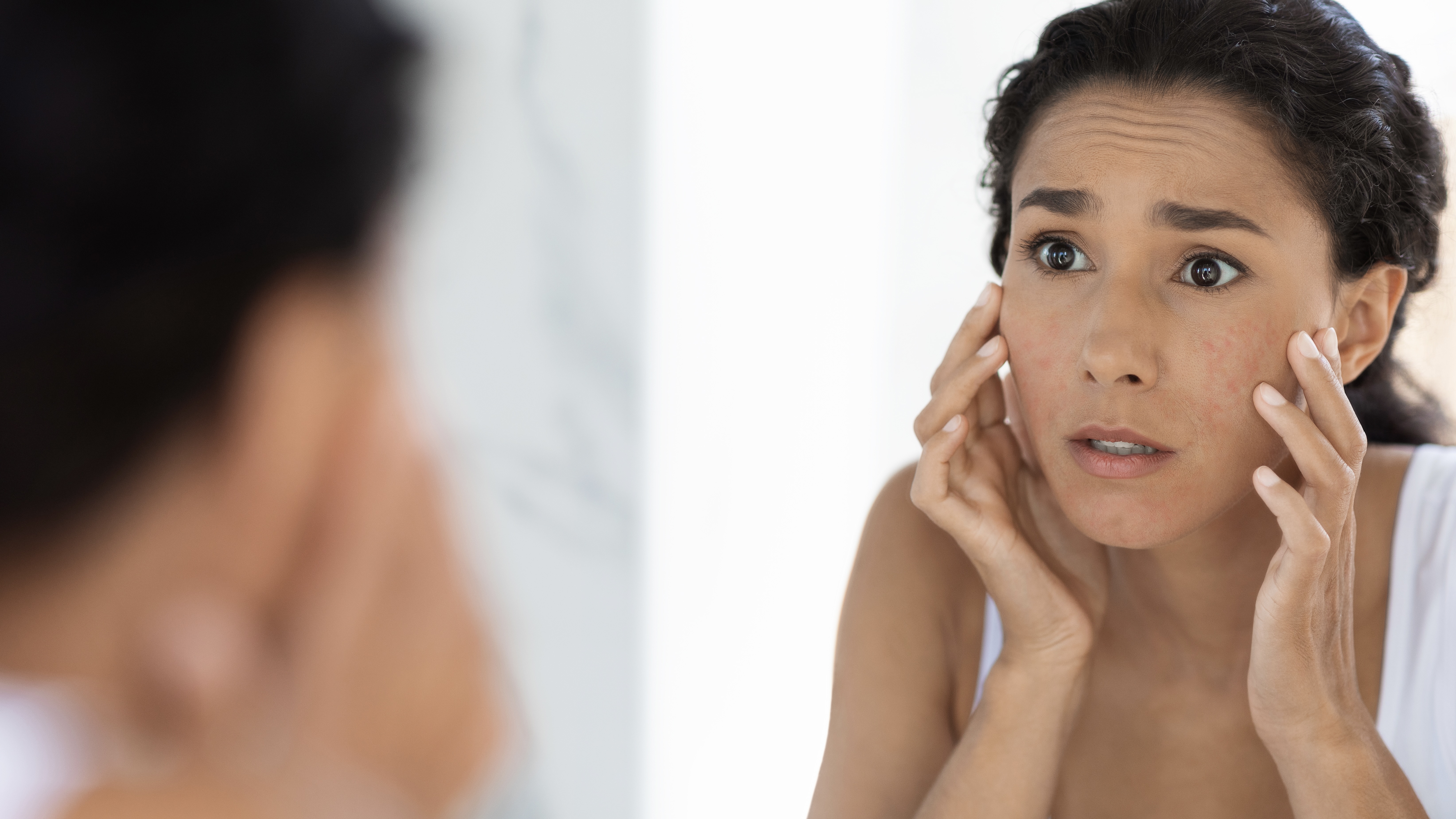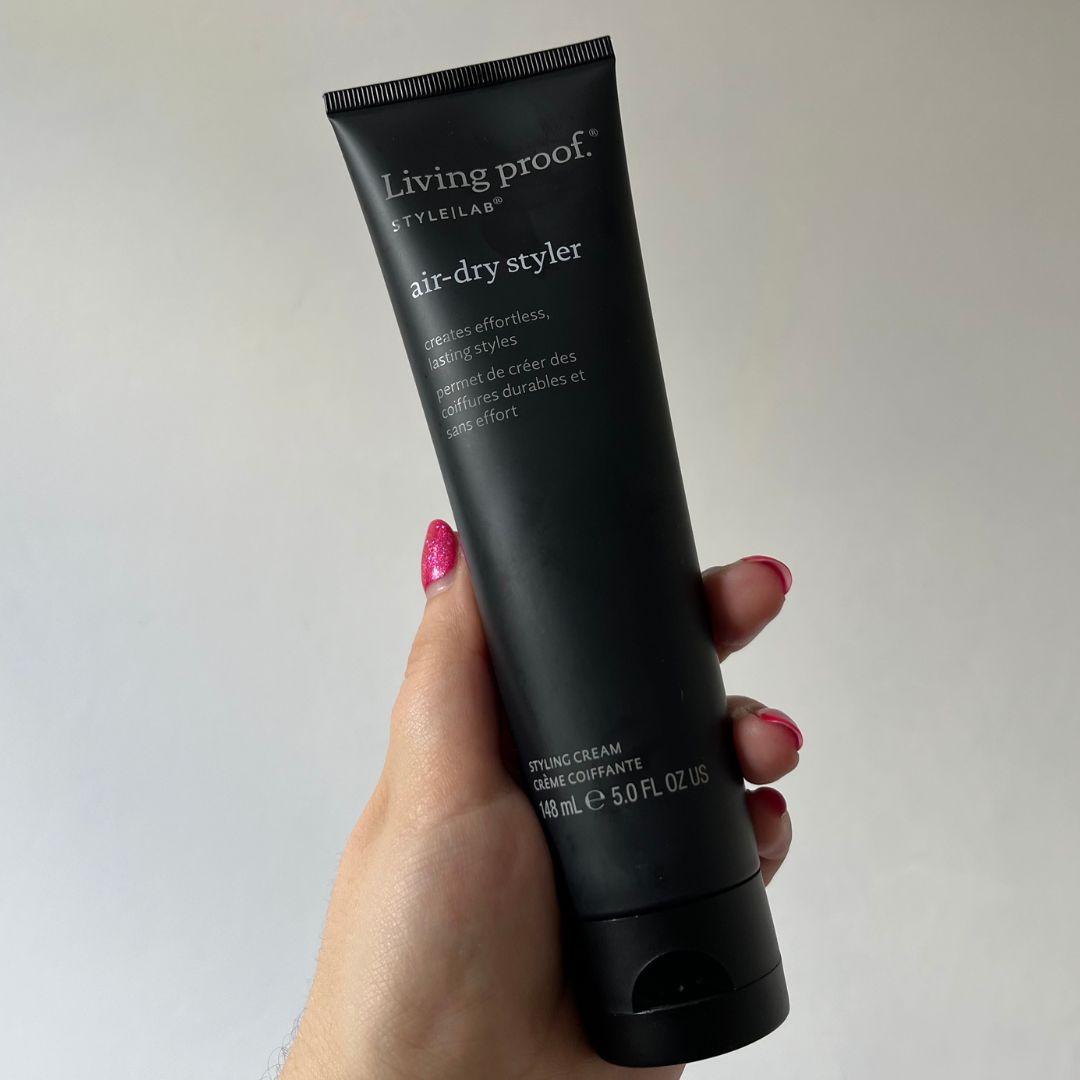Does giving up dairy really help reduce acne? I put it to the test
We separate the truths from the myth, with help from a top nutritional therapist


I started to suffer from spots in my teens, and I spent years asking every facialist I met how to get rid of acne without noticing any change after implementing their advice.
I employed a special skincare routine for acne. Used the best spot treatments I could get my hands on. Used acne patches. Put toothpaste on spots. You name it, I tried it. One thing I'd never considered, however, was the relationships between acne and dairy.
Over time, I learned how to cover my acne immaculately and decided that it was handy that I'm both a beauty journalist and make-up artist, so could at least use the best products with the best techniques and get on with life with the hope - but not expectation - that things would get better.
That was all before I was diagnosed with PCOS (polycystic ovary syndrome). Once that happened, everything started to make sense, and I began looking into the factors which help to balance hormones in a bid to rid myself of acne. Nutrition kept coming up again and again, so I started to tweak my diet.
First, I tried to balance my sugar levels, making sure that if I was eating something very sweet, that I ate it alongside other foods containing fat and protein to reduce sugar spikes. I also prioritised foods which would give my all-important microbiome a boost, adding probiotics and fermented foods to my diet.
My skin started to improve. A lot. So I kept reading and asking experts about the nutritional link between skin and dairy would every now and then come up. But is there really a link between acne and dairy?
Anecdotally, when I weeded all cow's milk and cow's milk products out for a couple of months, my skin was exceptionally clear and glowing. But equally I was sticking to a really balanced diet, was booze-free, and hardly ate any processed foods. So, yes, my skin was clear when I wasn't eating much dairy—but that doesn't really prove anything.
Marie Claire Newsletter
Celebrity news, beauty, fashion advice, and fascinating features, delivered straight to your inbox!
I needed to talk to someone who knew skin intimately, so called up clinical aesthetician Pam Marshall to ask for her opinion. She said, "Out of around every ten clients with acne, maybe 2-3 benefit from reducing dairy." Hardly convincing numbers, then.
More confused then ever, my next port of call was nutritional therapist and author Eve Kalinik, who has always given me sound advice. Over the course of an hour's chat, she separated the fact from fiction on the connection between dairy and acne. Here's what you need to know.
Hormones are key
While Eve was keen to point out that there's very little clinical evidence to support the relationship between dairy and acne, she also said: "If people have other hormonal issues like PCOS or fibroids or extreme PMS, it might be worth taking dairy out to see if that has an impact on acne, which can be driven by hormonal triggers."
That said, she emphasised the benefits of dairy in a diet. "It's an excellent source of protein, calcium, and fat soluble vitamins, and becoming nutritionally deficient can exacerbate other issues, so tread carefully," she added.
Not all dairy is born equal
Firstly, cow's milk is different from goat's or sheep's milk, on account of the IGF-1, a growth factor responsible for rapid growth and development in cows. "This factor can trigger acne if there's a hormonal link," says Eve.
Again, she is cautious surrounding the entire removal of it. "I'd take it out for a short length of time to see if it helps," she says.
Secondly, fermented dairy comes with a host of benefits, from promoting a healthy gut to regulating cholesterol and, you guessed it, hormones. "People tend to have more issues with milk in studies unfermented —yoghurt and cheese don’t show that relationship so much. When you ferment milk you break down lactose and casein and those are the two things most people react to," says Eve. So fermented cow's milk is vastly different in how it will affect your body from, say, a scoop of ice cream.
Finally, "organic dairy contains fewer chemicals, hormones, and antibiotics—though remember that this depends on where you're buying, as there will be different standards and regulations in different places," says Eve.
It might not be the dairy but rather other ingredients causing problems
This one's crucial to remember. If your dairy comes with a whole load of sugar and stabilisers in it and then you break out, it's just as likely to be them as it is the dairy itself.
"Live natural yoghurt with berries has loads of benefits, while a sugary or sweetened dairy product can cause spikes in glucose, which has in some cases been linked to acne symptoms," Eve says.
Madeleine Spencer is a journalist and broadcaster who has contributed to titles including Grazia, Glamour, InStyle, The Independent, The Evening Standard, and Stylist, as well as offering commentary for the BBC, Sky News, and ITV.
She is keen on exploring the significance beauty rituals, products, and memories have on people from different walks of life, and enters into conversation on the topic with guests on her podcast, Beauty Full Lives.
-
 Jonathan Anderson is going to Dior Men
Jonathan Anderson is going to Dior MenHis debut collection will be this June
By Mischa Anouk Smith
-
 I'm a 2025 bride and these are the best affordable wedding dresses I've found
I'm a 2025 bride and these are the best affordable wedding dresses I've foundLess than £1,000 but still the height of chic
By Sofia Piza
-
 I haven't worn my hair completely natural for years, but this air-dry styling cream has made me love my waves again
I haven't worn my hair completely natural for years, but this air-dry styling cream has made me love my waves againI will never be without this
By Amelia Yeomans